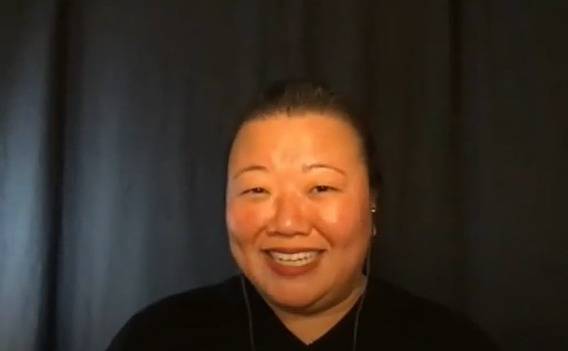As Rosetta Lee concluded her recent virtual discussion with Mercer Island participants about improving cross-cultural communication, she delivered a vital piece of knowledge to be used as a springboard for what lies ahead.
“Our job is to continue to learn, but in the meantime go forward with the best of our intentions and address the impacts, whatever they may be. I find that most of the time, the impact is good, but every once in a while it’s not, and in those moments it’s critical that we address the impact,” said Lee, an instructor at Seattle Girls School and local and national expert in diversity, inclusion and equity.
Mercer Island Parent Edge brought Lee aboard for a two-part presentation on Oct. 29 during which she also focused on navigating microaggressions.
One of the key elements of the cross-cultural communication workshop was discussing ways that cultural values, power, privilege and differences affect the way people communicate. Internal, external and institutional dimensions of identity and culture that were addressed included race, class, gender, religion, ethnicity, sexual orientation, ability, age, geographic location, appearance, language, educational attainment, position or title, seniority, status and relationship to power players.
During the navigating microaggressions section of the evening, one of the things that Lee focused on was the practical strategies for what people can do or say when they are the target of, witness to and agents of microaggressions.
Lee was born and raised in Seoul, South Korea, and at the age of 10 her family moved to a predominantly white neighborhood in suburban Massachusetts. Lee said she did a lot of communication learning on her way to succeeding in school and her career.
One of the participants asked Lee for some tips on becoming more aware of the differences in cross-cultural communication. Lee said that people often make judgment calls on others before getting to know the entire story behind a situation.
For example, someone could be judged as being rude or impersonal if they jump into the middle of a conversation. For them, the overlapping of speech and interchange patterns could be part of their culture, whereas waiting for someone to finish talking before it’s another person’s turn could be part of someone else’s culture.
She referred to a quote from Okokon O. Udo, PhD: “To be culturally effective doesn’t mean you are an authority in the values and beliefs of every culture. What it means is that you hold a deep respect for cultural differences and are eager to learn, and willing to accept, that there are many ways of viewing the world.”
Udo’s viewpoint is a mindset and a practice, not a one-time event, Lee added.
In addressing one’s behavior that may not have been hurtful, Lee said to speak from the heart and be A DEAR: Affirm the person, the relationship, or everyone’s rights; Describe the behavior without judgment; Explain the impact, emotion, filters through which you experienced what happened; Assume positive intent; and Request or suggest different behavior.
Lee added on the navigating microaggressions hotsheet that effective interventions can build relationships, shift attitudes and win over allies.
For more information on Mercer Island Parent Edge’s programs, visit http://miparentedge.org/


